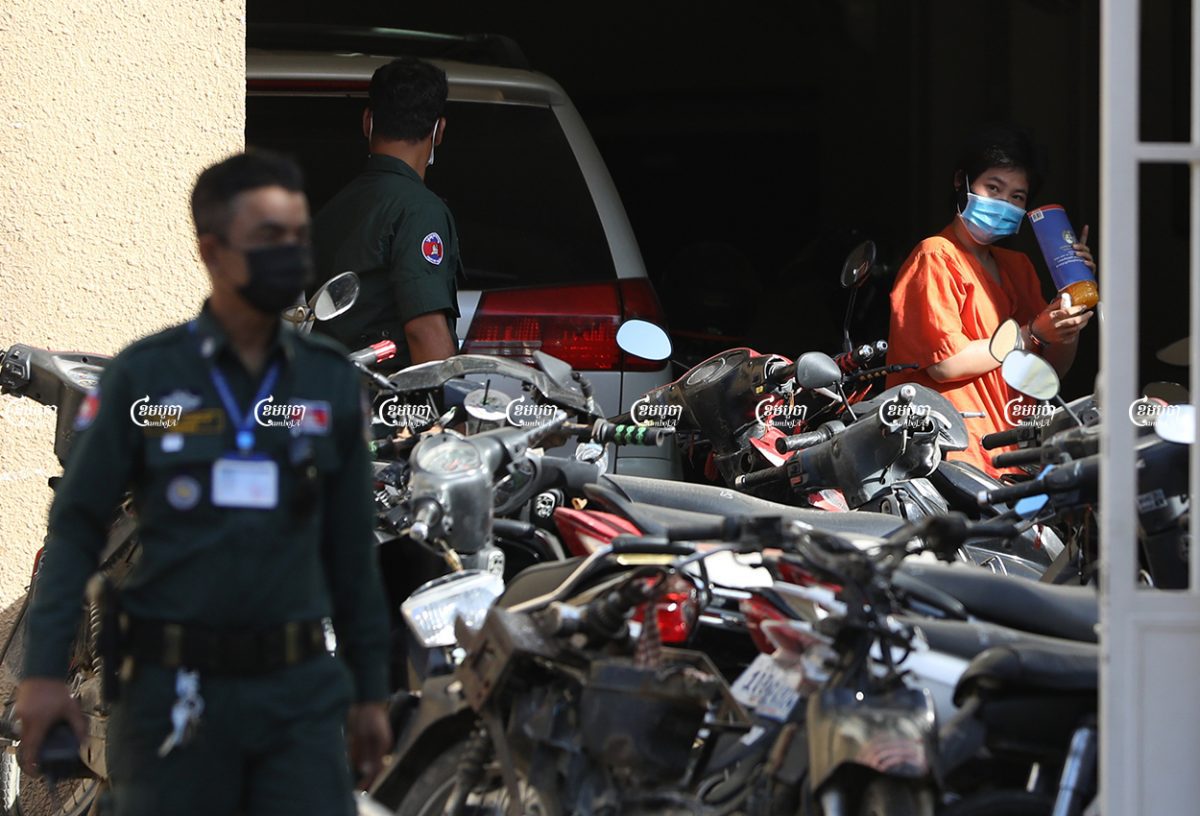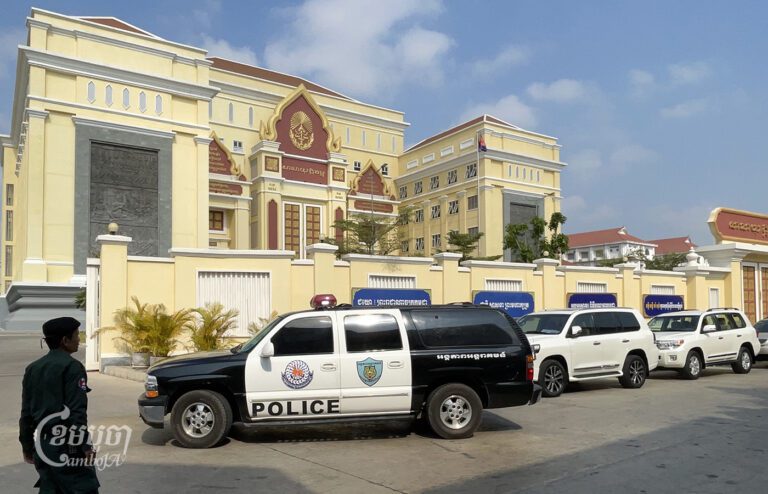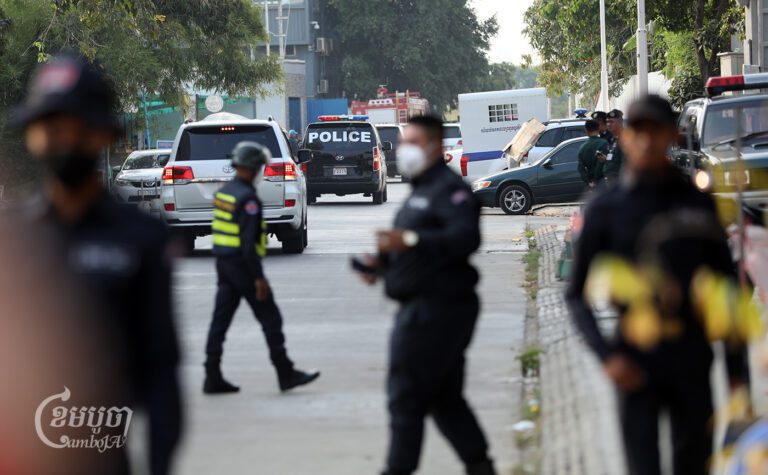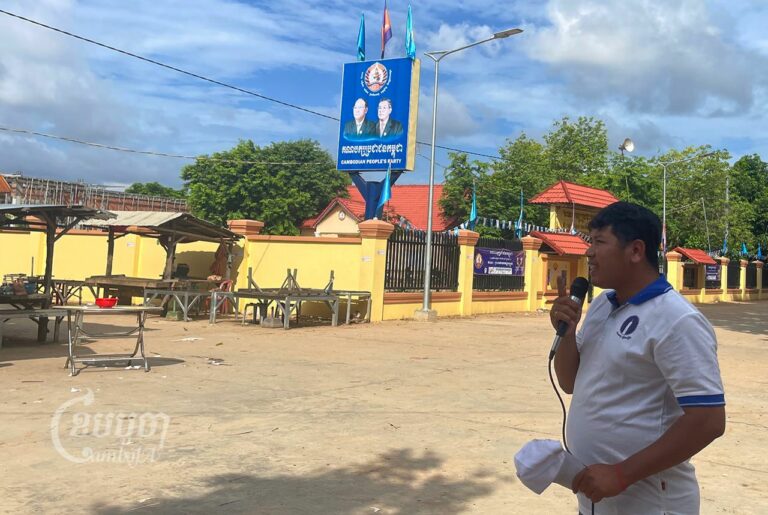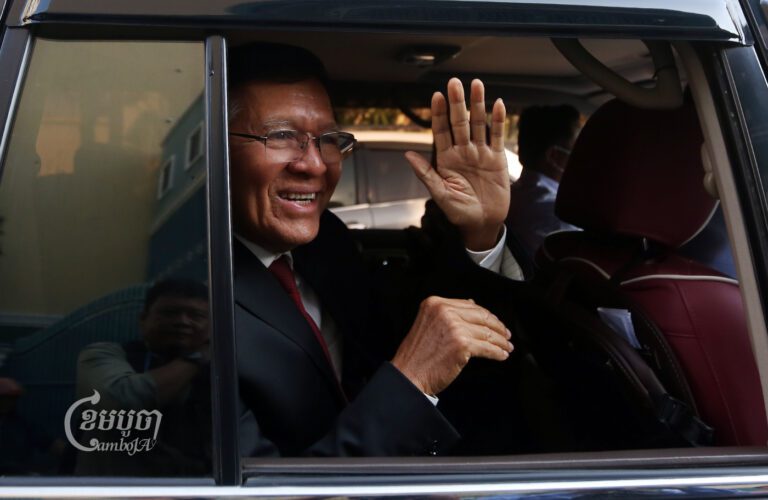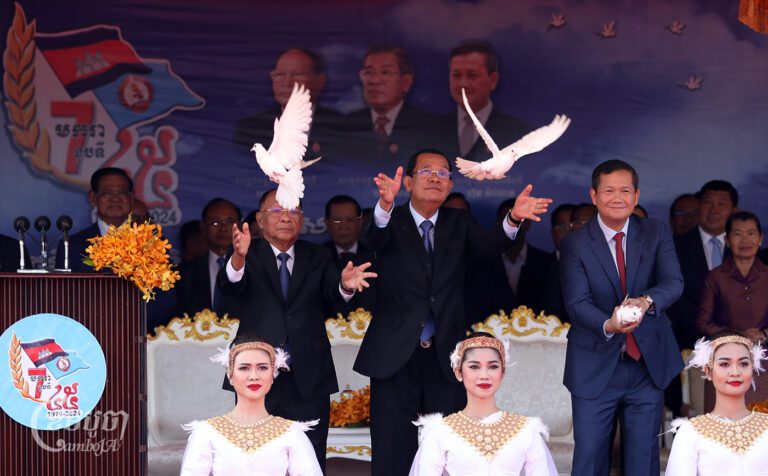Four youth activists with the Khmer Thavrak and Khmer Student Intelligent League who were arrested last year and charged with incitement for protesting a unionist’s arrest maintained their innocence at a court hearing in Phnom Penh Tuesday as part of a sprawling case rights activists have called politically motivated.
In July 2020, unionist Rong Chhun was arrested after saying Cambodia had given up border land to Vietnam. Subsequently, 15 activists, former CNRP lawmakers, and others were charged while calling for his release.
Three former CNRP officials, Chhour Pheng, Chum Puthy and Kong Sam An, were also imprisoned on the same charges, while five “absconding” individuals were charged with incitement, including the CNRP’s Ho Vann, Ou Chanrith, Kong Sophea and Seng Bunrong – and Hong Lim, a former member of parliament in the Australian state of Victoria.
Defendants Hun Vannak, Chhoeun Daravy, Eng Malai, Koeut Saray and Tha Lavy are activists with Khmer Thavrak, and Mean Prummony and Moung Sopheak are part of the Khmer Student Intelligent League Association. The group was arrested in August and September 2020.
In the hearing room on Tuesday morning, Tha Lavy, 25, said that he is a university student who monitors societal issues. The day Rong Chhun was arrested, Lavy said he considered it to be an injustice and rode his bicycle from his rental room in Tuol Kork district to Phnom Penh Police Headquarter and then onto the Phnom Penh Municipal Court, where Chhun was questioned. He later joined protests calling for his release.
“I joined to protest for calling [to release Rong Chhun], it came from my heart that loves and respects teacher Rong Chhun,” Lavy said. “Whatever I did, it’s just performing the free expression based on the law.”
He said he and other youth activists requested permission to hold a protest at Freedom Park but their request was rejected with City Hall saying the youth groups couldn’t manage those who participated.
“Whether City Hall allows us or not, I still wanted to do it because I think that participants would be fewer than 20 people,” said Lavy.
Sam Rithyveasna, deputy prosecutor of the municipal court, asked if he felt that it was a mistake to ignore the municipal decision.
“Based on constitutional law and international treaty, I think that it’s just a protest and not wrong,” replied Lavy.
Eng Malai, 34, also maintained her innocence, explaining how “in general, when there are land disputes that see rich or powerful people abuse justice, or any issues involving injustice we always join to monitor.”
She said that Khmer Thavrak is a volunteer group, with no leader and no salaries. And she explained how many of the youth activists considered Chhun to be a hero for his efforts to support workers’ rights.
“I still think that my activity has integrity,” said Malai.
Koeut Saray, 40, a former monk who studied law said he spoke on his Facebook live about the injustices of the case against Chhun.
He came to Phnom Penh to join protests calling for his release and was brought by police to Wat Botum in September 2020 and defrocked, after which he was sent to jail.
“At first, I did not know why they defrocked me or what’s wrong but after that they put handcuffs on me after I was defrocked they told me the charge,” said Saray.
“I think that my activity is not illegal because there is no way that I could destroy the nation because even a life of an animal, I do not dare to kill,” said Saray.
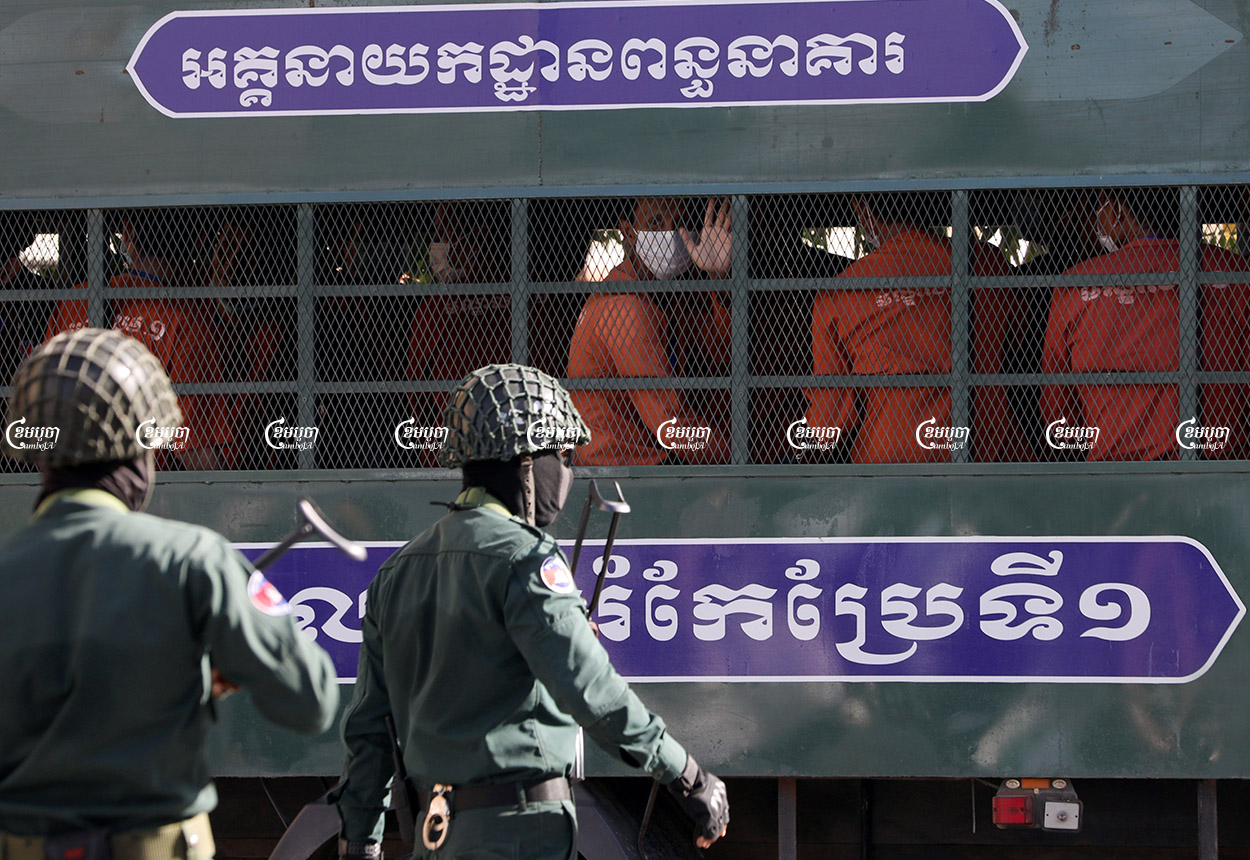
Moung Sopheak said he did not join the protest at all.
“I came in front of the municipal court once but I sat to drink a coffee at the coffee shop in front of the court and I did not join the protest,” Sopheak. “I think that it is very unjust for me because I just stood to watch the protest and then I was arrested.”
Four defense lawyers including Sam Sokong, Sam Chamroeun, and Sam Titseyha joined to defend their clients in the hearing room.
San Mala, a senior advocacy officer at the Cambodian Youth Network, said that the courts are going after political and environmental protesters more and more frequently with incitement charges as a way to stop anyone from criticizing the government.
“What they did was participate in social justice and there were not any activities that cause turmoil or chaos to the society or damage public property while youth groups expressed their opinions,” he said.
“The youth are a group of people who are brave and they still continue to pay attention to advocate and interview with media networks, so they [the authorities] want to shut their voices,” said Mala.
Chak Sopheap, executive directive of the Cambodian Center for Human Rights, said the fact that the activists on trial were arrested while legitimately exercising their freedom of assembly is yet another stain on Cambodia’s human rights record.
“The RGC’s tendency to target individuals who call out authorities’ failures or shortcomings exemplifies the RGC’s inclination to silence any and all criticism, rather than adequately addressing its citizens’ concerns,” she said.
“Sadly, hope for redress for the defendants is slim, as courts in Cambodia have previously demonstrated their tendency to act as a rubber stamp to fulfill the authorities’ wishes, and to legitimize the government’s crackdown on fundamental freedoms,” Sopheap said. “Nevertheless, we express our wish to see these activists immediately released and the charges against them unconditionally dropped.”
The trial was delayed by months due to the pandemic. Though there was only time for four of the defendants to speak, the judge set the next trial date as August 31, 2021.


